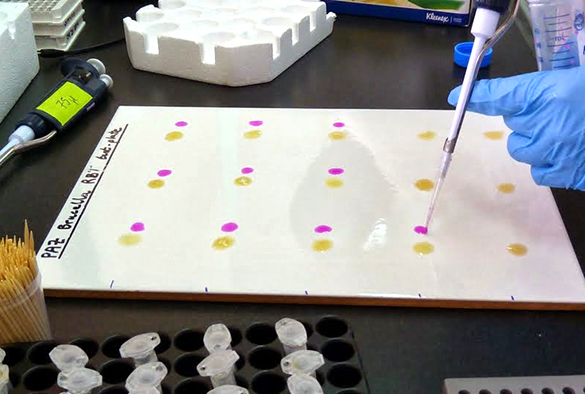
A new article highlights how University of Liverpool research is helping to transform brucellosis diagnosis and treatment in Kenya, potentially improving health outcomes for millions.
The piece, published by the International Livestock Research Institute (ILRI), showcases the work of Professor Eric Fèvre, jointly appointed at the University of Liverpool and ILRI, and his colleague Dr Katie Hamilton, also a Liverpool staff member working at ILRI, whose long-standing research into zoonotic diseases has led to a major shift in national health policy in Kenya.
Brucellosis is a debilitating bacterial disease that affects both animals and humans. In Kenya, outdated and inaccurate tests were leading to widespread misdiagnosis, with patients receiving unnecessary treatment. Working with partners at ILRI, the Kenyan government, and international collaborators, Professor Fèvre and his team provided robust evidence that the Rose Bengal Test (RBT) is significantly more accurate and cost-effective than the commonly used FBAT.

Their findings have been instrumental in the development of Kenya’s National Strategy for the Prevention and Control of Brucellosis in Animals and Humans (2021–2040), and in a new government policy directive (November 2024) urging hospitals to switch to the RBT for brucellosis diagnosis.
Professor Fèvre said: “This is evidence-based research directly informing national policy. It is a great example of curiosity-driven science translated into real-world impact through strong partnerships, affecting healthcare provision in an entire nation.”
Read the full story on ILRI’s website: Brucellosis misdiagnosis is costing Kenya - new policy aims to change that